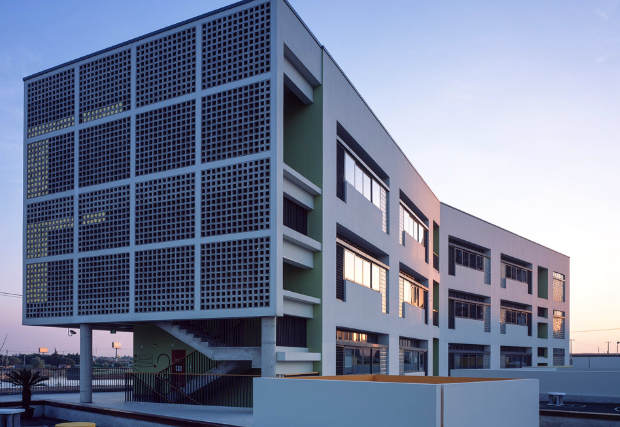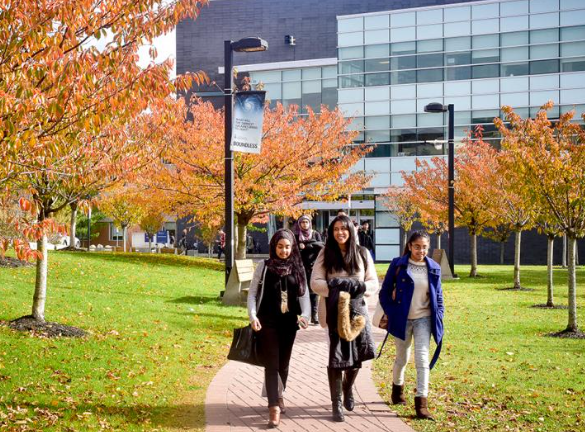Overview of Higher Education in Shanghai
Shanghai, known as the “Pearl of the Orient,” has a vibrant and diverse higher education landscape, reflecting its status as a cosmopolitan city and a global financial hub. The city’s universities are at the forefront of academic research, technological innovation, and cultural exchange, attracting students and scholars from around the world.
Table of Contents
Historical Development of Universities in Shanghai
The evolution of universities in Shanghai dates back to the early 20th century, with the establishment of institutions like Fudan University in 1905. These universities laid the foundation for a robust educational system, emphasizing rigorous academic standards and intellectual freedom. Over the decades, Shanghai’s universities have expanded their infrastructure, now boasting modern campuses with state-of-the-art facilities. The commitment to excellence is evident from the significant investments made in research and development, often surpassing 100 million RMB annually in leading universities.
Diverse Education Systems and Academic Cultures
Shanghai’s higher education system is a tapestry of diverse academic cultures, offering a wide array of programs ranging from traditional disciplines like medicine and engineering to emerging fields such as artificial intelligence and sustainable energy. Universities in Shanghai are known for their competitive admission processes, with top institutions having acceptance rates as low as 5% to 10%. The academic environment is highly dynamic, characterized by a blend of rigorous coursework, innovative teaching methodologies, and a continuous emphasis on critical thinking and practical application.
Impact of International Collaborations and Exchange Programs
International collaborations and exchange programs are pivotal in shaping the global outlook of Shanghai’s universities. These institutions have forged partnerships with over 300 universities worldwide, facilitating a vibrant exchange of ideas, research, and culture. Programs like the Shanghai Government Scholarship support international students, covering tuition fees and providing stipends of up to 2,500 RMB per month. The impact of these initiatives is profound, with international students comprising approximately 10% of the total student population in major universities.
Top 69 Universities and Colleges in Shanghai.
| No. | School Name | City | Level | Remarks |
|---|---|---|---|---|
| 1 | Fudan University | Shanghai | Undergraduate | Public |
| 2 | Tongji University | Shanghai | Undergraduate | Public |
| 3 | Shanghai Jiao Tong University | Shanghai | Undergraduate | Public |
| 4 | East China University of Science and Technology | Shanghai | Undergraduate | Public |
| 5 | Shanghai University of Technology | Shanghai | Undergraduate | Public |
| 6 | Shanghai Maritime University | Shanghai | Undergraduate | Public |
| 7 | Donghua University | Shanghai | Undergraduate | Public |
| 8 | Shanghai University of Electric Power | Shanghai | Undergraduate | Public |
| 9 | Shanghai University of Applied Sciences | Shanghai | Undergraduate | Public |
| 10 | Shanghai University of Medicine | Shanghai | Undergraduate | Public |
| 11 | Shanghai Ocean University | Shanghai | Undergraduate | Public |
| 12 | Shanghai University of Traditional Chinese Medicine | Shanghai | Undergraduate | Public |
| 13 | East China Normal University | Shanghai | Undergraduate | Public |
| 14 | Shanghai Normal University | Shanghai | Undergraduate | Public |
| 15 | Shanghai International Studies University | Shanghai | Undergraduate | Public |
| 16 | Shanghai University of Finance and Economics | Shanghai | Undergraduate | Public |
| 17 | Shanghai University of International Business and Economics | Shanghai | Undergraduate | Public |
| 18 | Shanghai Customs College | Shanghai | Undergraduate | Public |
| 19 | East China University of Political Science and Law | Shanghai | Undergraduate | Public |
| 20 | Shanghai University of Sport | Shanghai | Undergraduate | Public |
| 21 | Shanghai Conservatory of Music | Shanghai | Undergraduate | Public |
| 22 | Shanghai Theatre Academy | Shanghai | Undergraduate | Public |
| 23 | Shanghai University | Shanghai | Undergraduate | Public |
| 24 | Shanghai Police College | Shanghai | Undergraduate | Public |
| 25 | Shanghai University of Engineering and Technology | Shanghai | Undergraduate | Public |
| 26 | Shanghai Lixin University of Accounting and Finance | Shanghai | Undergraduate | Public |
| 27 | Shanghai Dianji University | Shanghai | Undergraduate | Public |
| 28 | Shanghai Sanda University | Shanghai | Undergraduate | Private |
| 29 | Shanghai University of Political Science and Law | Shanghai | Undergraduate | Public |
| 30 | Shanghai Second Polytechnic University | Shanghai | Undergraduate | Public |
| 31 | Shanghai Business School | Shanghai | Undergraduate | Public |
| 32 | Shanghai Lida Polytechnic Institute | Shanghai | Undergraduate | Private |
| 33 | Shanghai Jianqiao University | Shanghai | Undergraduate | Private |
| 34 | Shanghai Xingwei College | Shanghai | Undergraduate | Private |
| 35 | Shanghai Chinese Overseas Education College | Shanghai | Undergraduate | Private |
| 36 | Shanghai Institute of Visual Arts | Shanghai | Undergraduate | Private |
| 37 | SISU Xian Dai College, Shanghai International Studies University | Shanghai | Undergraduate | Private |
| 38 | Shanghai Normal University Tianhua College | Shanghai | Undergraduate | Private |
| 39 | University of Shanghai for Science and Technology | Shanghai | Undergraduate | Public |
| 40 | Shanghai New York University | Shanghai | Undergraduate | Sino-Foreign Cooperative Education and Mainland-Hong Kong Cooperation |
| 41 | Naval Medical University, Shanghai | Shanghai | Undergraduate | Public |
| 42 | Shanghai Tourism College | Shanghai | Diploma | Public |
| 43 | Shanghai Donghai Vocational and Technical College | Shanghai | Diploma | Private |
| 44 | Shanghai Business and Commerce Vocational and Technical College | Shanghai | Diploma | Private |
| 45 | Shanghai Publishing and Printing College | Shanghai | Diploma | Public |
| 46 | Shanghai Xingjian College | Shanghai | Diploma | Public |
| 47 | Shanghai Urban Construction Vocational College | Shanghai | Diploma | Public |
| 48 | Shanghai Vocational College of Transportation | Shanghai | Diploma | Public |
| 49 | Shanghai Maritime Vocational and Technical College | Shanghai | Diploma | Public |
| 50 | Shanghai Electronics and Information Technology College | Shanghai | Diploma | Public |
| 51 | Shanghai Zhendan College | Shanghai | Diploma | Private |
| 52 | Shanghai Minyuan Vocational and Technical College | Shanghai | Diploma | Private |
| 53 | Shanghai Ou Hua Vocational and Technical College | Shanghai | Diploma | Private |
| 54 | Shanghai Sibo Vocational and Technical College | Shanghai | Diploma | Private |
| 55 | Shanghai Institute of Arts and Crafts | Shanghai | Diploma | Public |
| 56 | Shanghai Jiguang Vocational and Technical College | Shanghai | Diploma | Private |
| 57 | Shanghai Business Foreign Language Vocational and Technical College | Shanghai | Diploma | Private |
| 58 | Shanghai Institute of Science and Technology | Shanghai | Diploma | Public |
| 59 | Shanghai Agricultural and Forestry Vocational College | Shanghai | Diploma | Public |
| 60 | Shanghai Bonde Vocational and Technical College | Shanghai | Diploma | Private |
| 61 | Shanghai Film Art Academy | Shanghai | Diploma | Private |
| 62 | Shanghai Sino-Hua Vocational and Technical College | Shanghai | Diploma | Private |
| 63 | Shanghai Workers’ Vocational and Technical College | Shanghai | Diploma | Public |
| 64 | Shanghai Civil Aviation Vocational and Technical College | Shanghai | Diploma | Public |
| 65 | Shanghai Nanhu Vocational and Technical College | Shanghai | Diploma | Public |
| 66 | Shanghai Vocational and Technical College of Science and Innovation | Shanghai | Diploma | Public |
| 67 | Shanghai Minhang Vocational and Technical College | Shanghai | Diploma | Public |
| 68 | Shanghai Modern Vocational College of Chemistry | Shanghai | Diploma | Public |
| 69 | Shanghai Construction Management Vocational and Technical College | Shanghai | Diploma | Public |
Ranking Methodology and Criteria
The ranking of universities and colleges in Shanghai is a comprehensive process that takes into account a variety of factors, ensuring that the institutions are evaluated holistically. This methodology aims to provide prospective students and academic professionals with a clear understanding of what these institutions offer.
Academic Reputation and Research Contributions
Academic Reputation is a crucial factor, often assessed through surveys conducted among academic peers, employers, and professionals. Universities in Shanghai boast an average citation rate of 30 citations per faculty member, indicating the impactful nature of their research.
Research Contributions are measured not just by the volume but also by the influence and innovation of the published work. Leading universities allocate significant portions of their budget, sometimes upwards of 20%, to research and development, resulting in advancements in fields like quantum computing and biotechnology.
Student Diversity and Campus Life
Student Diversity is a testament to the university’s commitment to fostering a global learning environment. Top institutions in Shanghai have international student populations that range from 15% to 25%, enriching the educational experience with varied cultural perspectives.
Campus Life plays a pivotal role in student satisfaction and well-being. Universities invest in modern amenities, from state-of-the-art sports facilities to cultural centers, ensuring that the average student-to-leisure-facility ratio remains around 10:1, thereby promoting a balanced lifestyle.
Faculty Qualifications and Industry Connections
Faculty Qualifications are a cornerstone of academic excellence. Renowned universities in Shanghai have a high proportion of faculty with terminal degrees in their field, usually over 85%, ensuring that students learn from leading experts.
Industry Connections enhance the practical learning experience, with top universities boasting partnerships with over 500 leading companies worldwide, facilitating internships, co-op programs, and job placements.
Infrastructure and Technological Advancements
Infrastructure plays a critical role in the ranking, with universities investing heavily in campus facilities. The average annual investment in infrastructure development and maintenance in top-tier universities ranges between 50 to 100 million RMB.
Technological Advancements are evident in the provision of cutting-edge resources and facilities.
Spotlight on Notable Universities
Shanghai’s educational landscape is a rich tapestry, with institutions catering to a wide spectrum of academic interests and career aspirations.
Comprehensive Universities with Diverse Disciplines
Comprehensive universities in Shanghai are renowned for their wide array of disciplines, catering to a diverse student population. These institutions are characterized by:
- A broad range of programs, offering everything from the arts and humanities to science and technology.
- Extensive research facilities, often with annual funding exceeding 200 million RMB, driving innovation across various fields.
- Interdisciplinary approach in curriculum design, encouraging students to explore and integrate different fields of study.
Prominent examples include Fudan University and Shanghai Jiao Tong University, both of which are known for their academic rigor and expansive degree offerings.
Specialized Institutions in Science, Technology, and Business
Specialized institutions in Shanghai stand at the forefront of innovation, offering cutting-edge programs in science, technology, and business. Key highlights include:
- State-of-the-art laboratories and research centers, with investments often surpassing 150 million RMB in equipment and facilities.
- Strong industry linkages, providing students with internship and employment opportunities in top multinational corporations.
- High employability rates, with over 90% of graduates finding employment or pursuing further education within six months after graduation.
Institutions like ShanghaiTech University and China Europe International Business School (CEIBS) are prime examples, offering specialized programs that cater to the evolving needs of the global market.
Liberal Arts Colleges and Their Unique Educational Approaches
Liberal arts colleges in Shanghai offer a unique educational approach, focusing on holistic development and critical thinking. Distinctive features of these institutions include:
- Small class sizes, ensuring personalized attention and mentorship, with student-to-faculty ratios as low as 10:1.
- A curriculum that emphasizes broad-based learning, critical thinking, and effective communication skills.
- Global exchange programs, allowing students to gain international exposure and a broader worldview.

Student Resources and Support Services
Universities in Shanghai provide an extensive array of resources and support services, ensuring that every student has the necessary tools and guidance to excel academically and personally. These services play a pivotal role in enhancing the student experience, from career development initiatives to comprehensive support systems for international students.
Career Development and Internship Opportunities
Universities in Shanghai are committed to bridging the gap between academic learning and professional employment. They offer a wealth of resources designed to prepare students for the workforce:
- Career Counseling Services: Personalized guidance sessions, workshops, and seminars to help students identify their career goals and navigate the job market effectively.
- Internship Programs: Strong connections with industry leaders, providing students with hands-on experience in their field of study. On average, over 80% of students participate in internships during their academic career.
- Job Placement Services: Dedicated career centers that maintain active relationships with over 1000 companies worldwide, ensuring a wide range of employment opportunities for graduates.
International Student Support and Cultural Integration
Recognizing the challenges faced by international students, universities in Shanghai offer comprehensive support services to ensure a smooth transition:
- Orientation Programs: Designed to acclimate international students to life in Shanghai, covering aspects such as visa regulations, accommodation, and cultural norms.
- Language Support Services: Including language courses and conversational practice sessions to help non-native speakers improve their proficiency in Mandarin.
- Cultural Integration Activities: Regular events and community engagement programs that promote cross-cultural understanding and foster a sense of belonging among international students.
Scholarships, Grants, and Financial Aid Programs
Understanding the financial constraints that students may face, universities in Shanghai offer a range of financial assistance programs:
- Merit-Based Scholarships: Awarded to students who demonstrate exceptional academic achievement, with awards covering up to 100% of tuition fees.
- Need-Based Grants: Providing financial support to students from economically disadvantaged backgrounds, ensuring that financial barriers do not impede educational pursuits.
- Government and Private Sector Scholarships: Including programs like the Shanghai Government Scholarship, which offers stipends of up to 2,500 RMB per month, alongside tuition fee waivers.
Research and Innovation Ecosystem
Shanghai’s universities are not just centers of academic learning; they are vibrant hubs of research and innovation, driving advancements in science, technology, and business. The city’s commitment to fostering a dynamic ecosystem for research and entrepreneurial ventures is evident in the robust collaboration between universities, industries, and innovation districts.
University-Industry Collaborations and Tech Transfer Offices
Universities in Shanghai are at the forefront of fostering industry partnerships, facilitating a seamless transfer of knowledge and technology from academia to the market:
Tech Transfer Offices
These specialized units within universities play a crucial role in patenting discoveries and negotiating licensing agreements with industry partners. On average, top universities in Shanghai file over 150 patents annually.
Collaborative Research Projects
Universities often collaborate with industry giants on research projects, with budgets sometimes exceeding 50 million RMB, ensuring that academic research is aligned with market needs and has practical applications.
Incubators, Accelerators, and Startup Support
Shanghai is a nurturing ground for startups and entrepreneurs, thanks to the extensive network of incubators and accelerators associated with its universities:
- Startup Incubators: Offering resources such as co-working spaces, mentorship, and seed funding to help nascent startups grow. Notable incubators have been known to support over 200 startups in a single year.
- Accelerator Programs: These programs provide intensive mentorship and resources over a short period, usually 3 to 6 months, helping startups to rapidly develop their products and business strategies.
Key Research Hubs and Innovation Districts in Shanghai
Shanghai’s commitment to innovation is also reflected in the development of specialized districts and research hubs:
- Zhangjiang Hi-Tech Park: Often referred to as China’s Silicon Valley, this area is home to over 3,000 high-tech companies, with a strong focus on biotechnology, software, and R&D services.
- Yangpu District: Known as the entrepreneurial hub of Shanghai, Yangpu has a vibrant ecosystem of startups, incubators, and research institutions, fostered by its proximity to major universities.

Alumni Networks and Industry Impact
The universities in Shanghai are not just educational institutions; they are dynamic ecosystems that continue to influence the world through their alumni and industry collaborations. The success stories of distinguished alumni, strategic partnerships with global corporations, and contributions to economic development highlight the significant impact these universities have locally and globally.
Success Stories and Distinguished Alumni
The alumni networks of Shanghai’s universities are rich and diverse, with graduates making significant contributions across various sectors:
Notable Achievements
Many alumni have become leaders in their fields, including Nobel laureates, government officials, and industry pioneers.
Global Influence
Distinguished alumni often hold key positions in multinational corporations and international organizations, leveraging their education and networks to foster global partnerships and collaborations.
University Partnerships with Global Corporations
Strategic collaborations between universities and industry giants are a cornerstone of the innovative ecosystem in Shanghai:
Research and Development
Universities partner with companies to conduct cutting-edge research, with projects often receiving funding in the range of 10 to 50 million RMB.
Talent Development
Collaborative programs with corporations provide students with internships, co-op opportunities, and job placements, ensuring that graduates are industry-ready and have practical experience.
Contribution to Local and Global Economic Development
The economic impact of Shanghai’s universities extends well beyond their campuses, contributing significantly to local and global markets:
Innovation and Entrepreneurship
Universities are catalysts for innovation, with startup incubators and tech parks generating over 100 successful ventures annually, driving economic growth and job creation.
Knowledge Transfer
Academic research and discoveries often translate into commercial products and services, contributing to industries such as biotechnology, information technology, and renewable energy, and adding substantial value to the economy.


